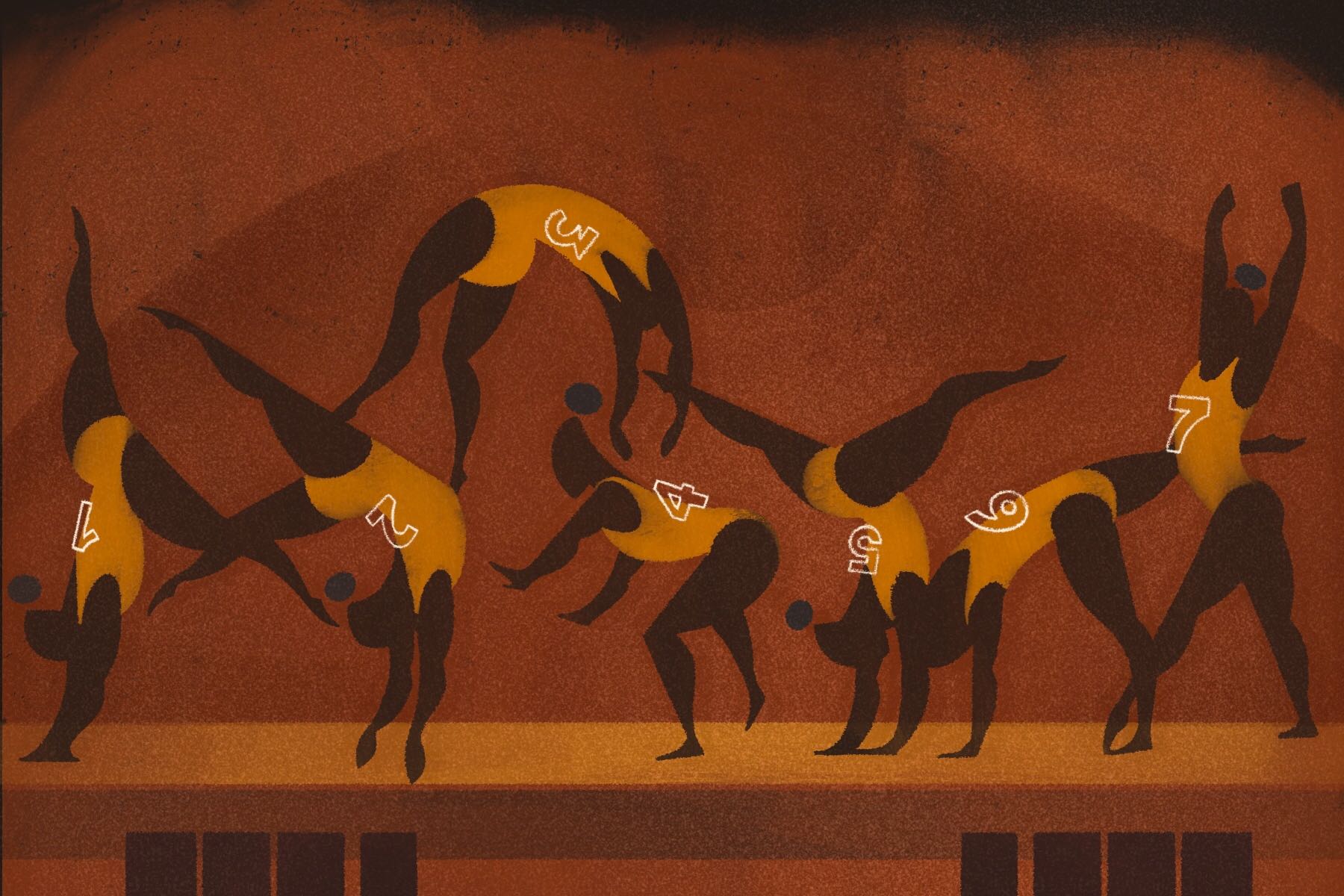From ages 2 to 14, I was a gymnast. Gymnastics fueled every thought and dream of mine, the skills I was learning and dreaming of learning on a constant loop in my head. Then, I got injured and it swiftly transformed from a difficult, but amazing, sport that I loved to a painful time of confusion.
I had to sit out on most events, conditioning instead of learning new skills with my teammates, watching myself fall behind practice after practice. Eventually, I was allowed to start training skills again but then the financial burden of the sport hit my family as my parents were preparing to send me to a private high school.
All of this collided together, and it culminated in me being pulled out of the sport that had been my “true love.” The pain was like a knife to the heart, twisting deeper and deeper. I cried for a month straight, bursting into tears at the mere mention of the word gymnastics, or anything related to that time of my life. I couldn’t watch meets on TV until a year after the incident, always tearing up at watching the sport that had consumed my entire life.
While this was the most emotionally painful experience I had been through thus far in my life, something happened that allowed me to still participate in this sport. I received a call from my gym about a month or two after being pulled out, asking about a job interview. Only a few months before I had submitted a job application, since my gym allowed current and former gymnasts to start coaching at 14 years old.
Somehow, the timing lined up just right. Like they say, when a door closes, a window opens. I dived into coaching, desperate to still be connected to this part of my life. Seven years later, this job that I fell into has taught me so much. The main lesson, one that being a gymnast also teaches you, being that resilience is the secret ingredient for growth.
https://www.instagram.com/p/B7n5zoKhRWi/?utm_source=ig_web_copy_link
As a gymnast, it seems like all you do is fall and fail most days. Nothing you do is perfect but the whole point is to try and make your skills as perfect as possible. So you’re constantly receiving criticism and pointers, making you grow a tough skin and become insanely resilient. You can’t move forward in this sport if you’re not willing to receive feedback and criticism — you wouldn’t even make it through one practice.
So, what do you do? You take the feedback, change your approach and try the skill again. You’ll probably fall 10 more times, but you’re learning something new each time you fall: You’re learning what doesn’t work. By learning what not to do, you eventually learn what to do to actually be able to land the skill, which is a long but necessary process.
Coaching is a lot like this. Very few people excel at coaching their first time: I was atrocious at it. I was terrified of the kids, had no idea what I was doing (despite all the training I had received) and was so flustered that I couldn’t make decisions. Eventually, though, I started to succeed. I started to remember different drills, learned how to relax and interact with the athletes and progress through coaching harder levels.
Now, I’m at a point where I can come up with new drills and conditioning on the spot, help the athletes find a balance between having fun and working hard and coach much harder levels with minimal trouble. I’m much more open to asking for help too. If there’s a skill I’m not sure how to teach or don’t know how to spot yet, I ask for help and am a better coach for it.
If I hadn’t learned how to be resilient, I would not have made it this far in my coaching career. I would have quit my first year and never came back, because this job is hard. This isn’t something you can skate through; there are several moving parts that take a while to get the hang of. It’s only in the last year or two that I’ve really learned how to juggle all of these aspects of the job, feeling a level of confidence that I wouldn’t have been able to dream of in my first year.
Surprisingly, half of these moving parts have nothing to do with gymnastics at all but with coaching in general. How to motivate your athletes, how to talk to and interact with them and how to balance hard work and fun are just a few factors that make an huge difference in how your athletes experience your sport.
Sometimes I look back on my journey through this sport — this sport that has made me grow in painful, amazing ways. My love for gymnastics has never died but grown in ways I didn’t know were possible when I was a gymnast. I can honestly say that while being pulled out of gymnastics will always be a painful memory, one that I will never fully recover from, I’m extremely thankful to be a coach.
I’m thankful to have grown in my resilience and character. I feel like I can bounce back from almost anything with a little bit of time and patience; my interactions with the athletes made me more empathetic. I get the opportunity to share my knowledge and love for this sport with the athletes I coach every day, and I get to do this at 21 years old.
It’s wild to think that I’m getting close to a decade in this role, but it’s an amazing experience that I wouldn’t take back for the world. To make this even better, I get to continuously learn and grow in this role. I will never know everything and I find an immense amount of comfort in that because that means I can continue to nurture my resilience in a way I don’t think most jobs allow for. So, if cultivating resilience in your life is a goal of yours, try coaching — it might surprise you.

















